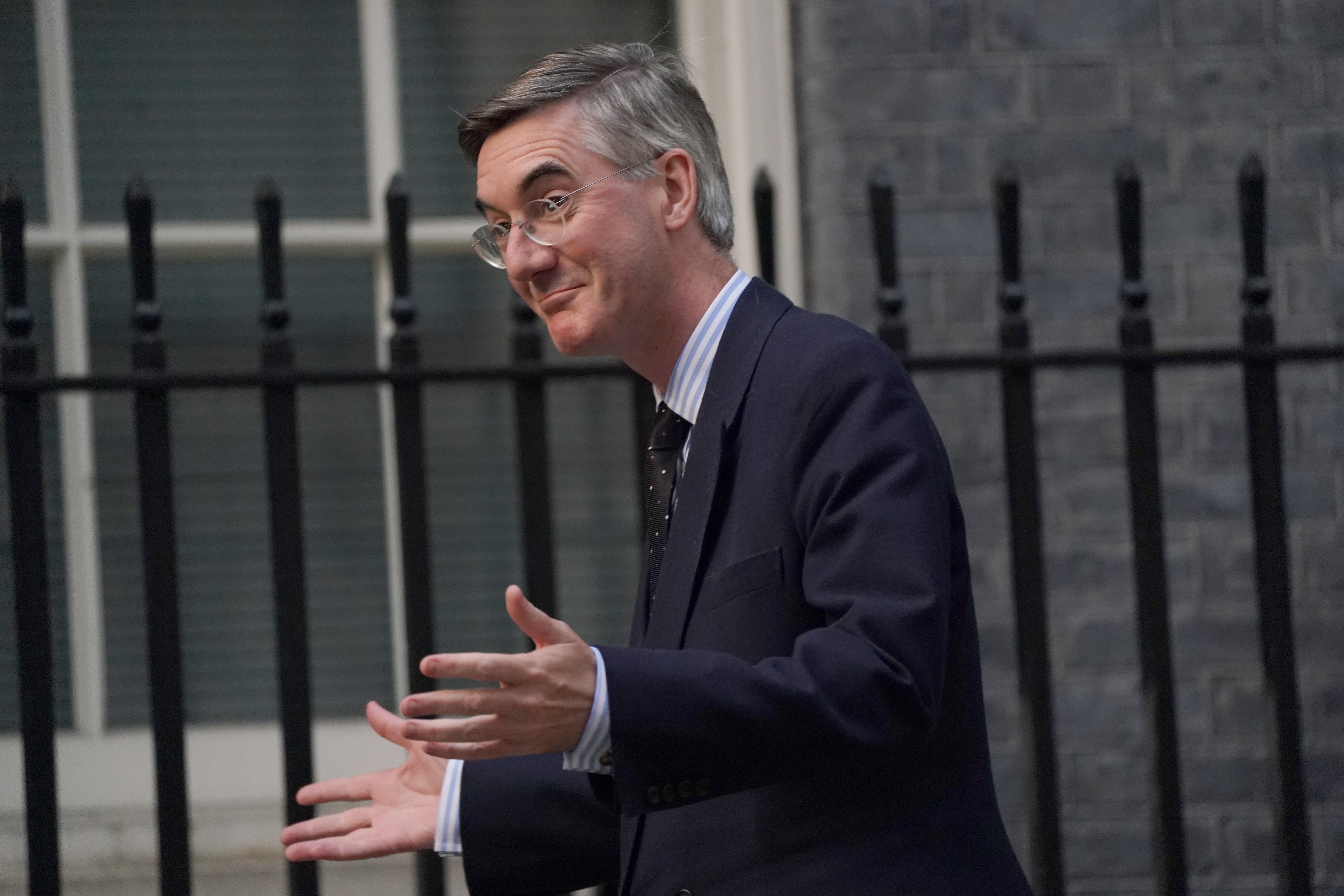Will the fallout from the Paterson affair damage the Tory party?
The government’s inevitable U-turn in the case of the former minister has made it look silly, but the debacle over standards could have longer-term consequences for Johnson and his party, writes Sean O’Grady


Only a few hours before, the leader of the House of Commons, Jacob Rees-Mogg, could hardly have been more eloquent in putting the case for reforming the role of the parliamentary standards commissioner, Kathryn Stone – along with that of the standards committee – and for doing so in time to avoid a miscarriage of justice being visited upon Owen Paterson:
“Members must act when we see a situation arise that we do not believe to be compatible with the principles of natural justice. This is about the process and not the individual case, but when considering this report how can one not consider the great sorrow that my right honourable friend, the member for North Shropshire, has suffered? The suicide of his wife is a greater punishment than any House of Commons committee could inflict.
As we all know: The quality of mercy is not strained. It droppeth as the gentle rain from heaven upon the place beneath. It is twice blessed: it blesseth him that gives and him that takes.
It is in this way that the house should consider this case, and standards more widely. The system must provide justice tempered by mercy, for mercy is essential to justice.”
Now, it would seem – following the mismanagement of this affair by Rees-Mogg and the Tory leadership – Paterson has decided to quit. The quality of mercy was indeed strained, though not in the way Rees-Mogg suggested. Presumably, Paterson now realises that he will not be able to clear his name; that if he wanted to stand again in the seat (in a by-election or otherwise) he might not get selected; and that his political career, as such, is over.
Rees-Mogg and the Tory leadership made the mistake of linking the Paterson case with the proposed procedural reforms, such as the addition of an appeal process. The plan was summarily rescinded some 20 hours later, in a spectacular U-turn, after what Rees-Mogg described, with studied understatement, as “a certain amount of controversy”. But it was not enough to save Paterson.
That “certain amount of controversy” overnight was indeed the cause of the change of mind, leaving ministers who had defended the policy along with the backbenchers who had unwillingly backed it looking foolish (not to mention a ministerial aide, Angela Richardson, who had resigned on principle, having to un-resign on principle within hours).
The disquiet among Conservative MPs was visible in the large number of abstentions and the smaller number of rebels recorded in the vote, and their opinions will have been transmitted, both directly and indirectly, to the whips, to Rees-Mogg, and to Boris Johnson: forcibly, too.
It may have begun to dawn on them that they were “expendable cannon fodder” – in the words of a Dominic Cummings tweet – because, he claims, “This is about trying to keep secret the coverup earlier this year on his illegal donations & lies to Geidt [the prime minister’s former independent adviser on ministerial conduct] and the Cabinet Secretary about it all.” In other words, it was not much about Paterson at all.
Their disgruntlement was mirrored in, and motivated by, emails from constituents and the general sense of outrage – not least from Lord Evans, who chairs the Committee on Standards in Public Life. As significant as the emails were, the Daily Mail also influenced events, with a hugely unhelpful front-page headline about “sleaze”. The Sun and the Daily Express downplayed the sleaze story, but the rest of the media turned a minor scandal involving one MP into a major one involving all of them, or at least the Conservative ones. The Mail remains highly influential in political circles. Paterson’s future was looking even less assured.
Fundamentally, though, the U-turn was inevitable, because the attempt to bypass and undermine the existing parliamentary standards system just wasn’t thought through. They might have been better off just asking for a lesser sanction against Paterson. The bogus reform plan was sponsored by Andrea Leadsom, and championed (briefly) by Johnson and Rees-Mogg; the chair of the proposed, and now abandoned, Standards Reform Committee was to be John Whittingdale, another prominent Brexiteer. It all looked like a cosy stitch-up to help another old Leave warrior, Paterson. Perhaps by coincidence, the current Mrs Johnson has in the past worked for both Whittingdale and Paterson.
Success in any case depended on setting up a new cross-party select committee, and that was contingent on the opposition parties joining in. But first the SNP, and then Labour, declared they would boycott the committee, and at that moment the scheme fell apart. Assuming that some watchdog was still needed, the only course of action was another U-turn: to reinstate the old regime. It was best that this was executed as fast as possible – and so it was.
The damage is done, though, which makes it the worst of all worlds for the government’s supporters, and most painfully for Paterson himself, as he leaves the Commons. From now on, Paterson, a previously obscure figure, will be associated with this high-profile unseemly affair, and the general accusation of “Tory sleaze” will sound that much more credible. It may also make it more difficult for the government to nobble the Electoral Commission and the Supreme Court, among other independent institutions due to be “reformed”.
Meanwhile, one of Stone’s next investigations will be into who paid for the expensive refurbishment of the Johnsons’ flat in Downing Street. Will the rules be changed (ie weakened) in time for that one – something that would require Labour, Lib Dem and SNP consent? Seems a little less likely now.






Join our commenting forum
Join thought-provoking conversations, follow other Independent readers and see their replies
Comments